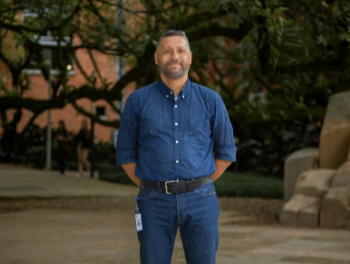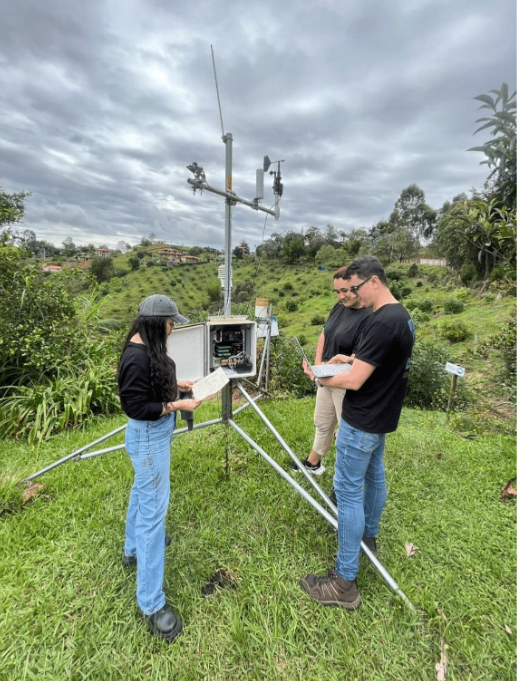Using augmented intelligence platforms in agriculture
Professor Peña is being supported by the DIA programme as part of a collaboration around precision agriculture. He aims to create augmented intelligence platforms that help identify crops that are under strain and require intervention with fertiliser or pesticides. This enables farmers to use less pesticide and fertiliser, making for more sustainable production, in line with the Academy’s strategic goals.

Colombia’s agricultural development challenge
The National Government of Colombia has defined 15 crops for developing the countryside following the signing of the peace agreement. Within this group of crops, avocados, plantains and oil palm stand out as crucial to generating wealth in the countryside. Despite the benefits of this agricultural development, heavy use of pesticides and fertilisers, through the generation of greenhouse gases, threatens the planet’s food security. For this reason, agricultural activities must integrate new technologies to improve financial and environmental sustainability in the context of the UN Sustainable Development Goals and the Academy’s strategic goals of an equal and sustainable society.
To achieve the required intensification with good sustainability, this project looks at augmented intelligence platforms (AIPs) where computer analysis helps identify threats to the health of crops. This allows farmers to intervene with these threats on a more localised level, reducing pesticide and fertiliser use.
Technology-driven solutions
Professor Peña is a data scientist, risk modelling, and machine learning professor, with a PhD in engineering and a strong background in data science, computational modelling, and deep learning. He has been a visiting researcher in the Institute of Artificial Intelligence (IAI) at De Montfort University in Leicester, UK, applying risk and machine learning concepts to improve crops’ environmental and financial sustainability.
The DIA-supported project brings together EAFIT University’s Innovation Office and the IAI at De Montfort University with industry partners Avocado Crop Praga, UNIBAN, and UNIPALMA. The main goals are:
- creating financial and sustainability metrics to assess the performance of machine and deep learning models in characterising threats to the health of three different crops (banana, avocado, oil palm)
- creating a spin-out to improve the management of threats to crop health in small and medium agricultural enterprises by designing adaptive dynamic vegetation classifications using multispectral aerial images
- promoting the development of precision agriculture from engineering supported by undergraduate programmes in agricultural engineering, computer science engineering, and a masters in risk management and in agribusiness
- achieving visibility of the project through the Royal Academy of Engineering to achieve the continuity of research processes in this field and the funding of the spin-out activities.

“I also consider that this [DIA] programme is a platform that makes science, technology and innovation activities visible, and the research results achieved by researchers associated with the programme.”
Taking the project forward
In August 2023, EAFIT University organised the 17th Colombia Computing Congress, which featured a workshop on precision agriculture, supported by the DIA programme. The project team will also present two scientific papers at the International Conference on Applications of Remote Sensing in Precision Farming (ICARSPF) 2024, which will be held in London in December 2024. The DIA project has also been integrated as part of a strategic project at EAFIT University that has six young researchers funded by the Ministry of Science, Technology, and Innovation of Colombia, two master’s students in the field of risk management, and three PhD students in engineering.
The strategic project’s key aim is to create a spin-out to improve crops’ environmental and financial sustainability using better risk management in the field. Currently, the spin-out is being led by the Innovation Office of EAFIT University, which ensures the research into the operational efficiency of activities for different crops that benefit the agricultural sector in Colombia.
Related content
DIA awardees
Distinguished International Associates (DIA) are international engineers working across all sectors. They work at the c…
FAQ
Information and answers to common queries about the Distinguished International Associates (DIA) Programme
